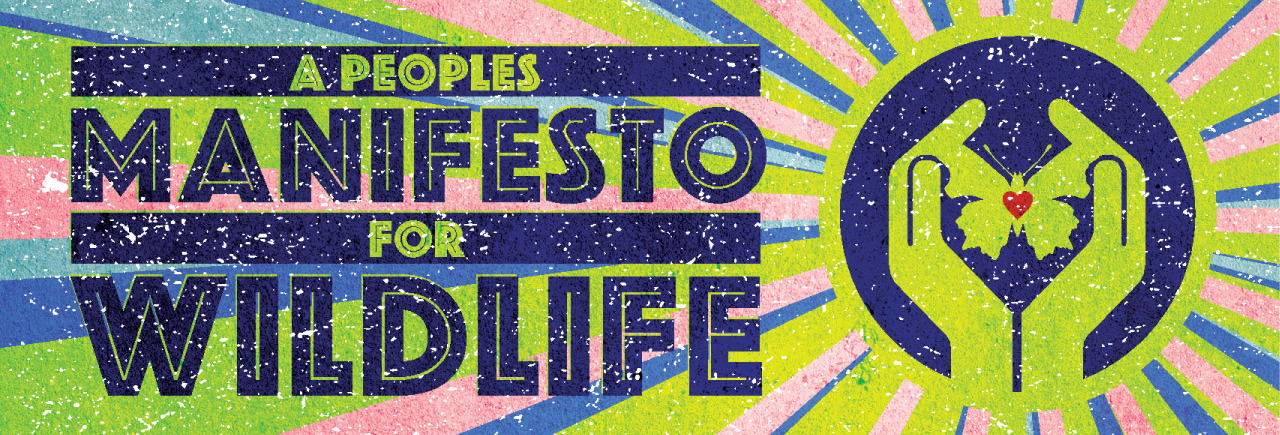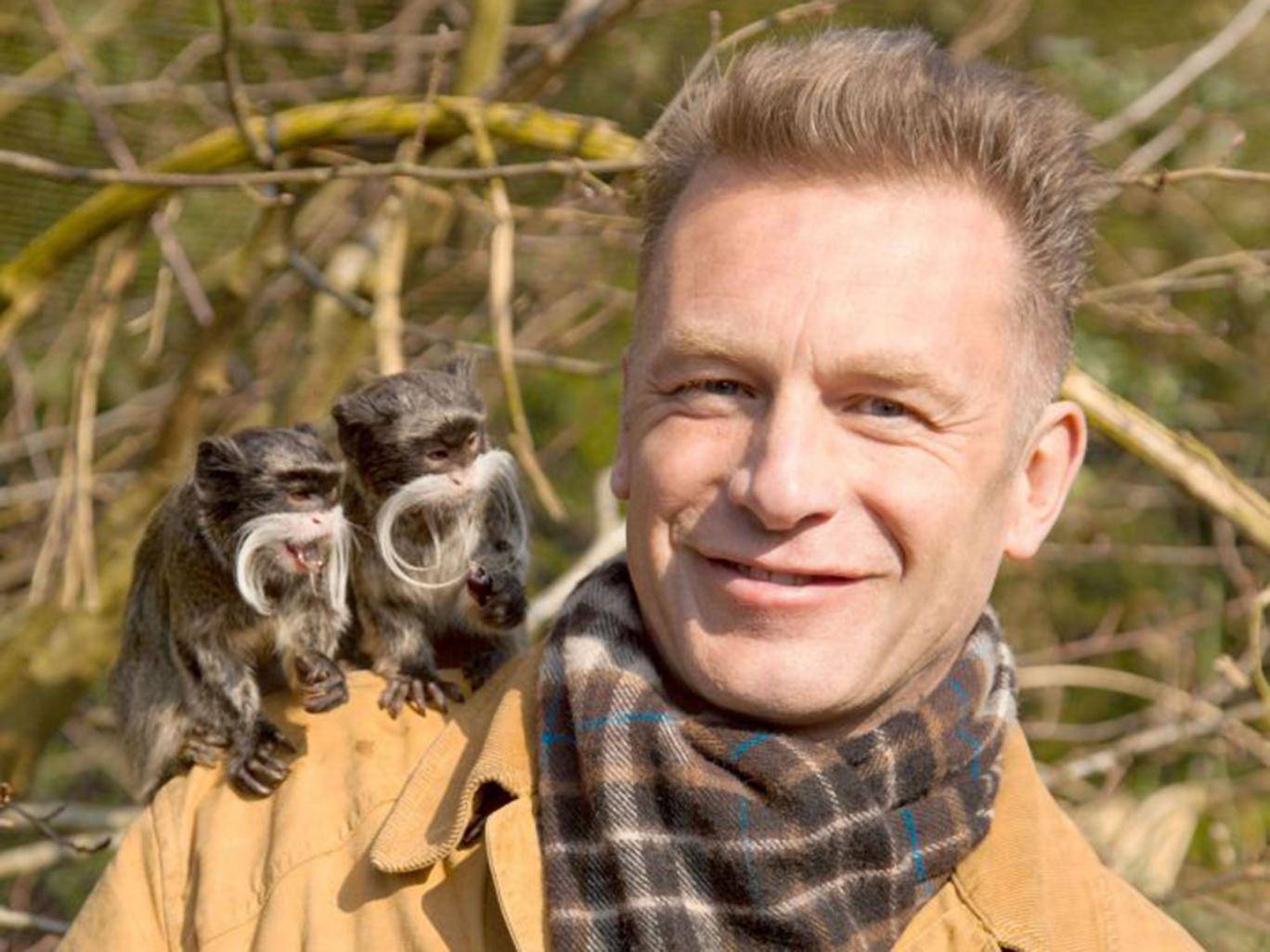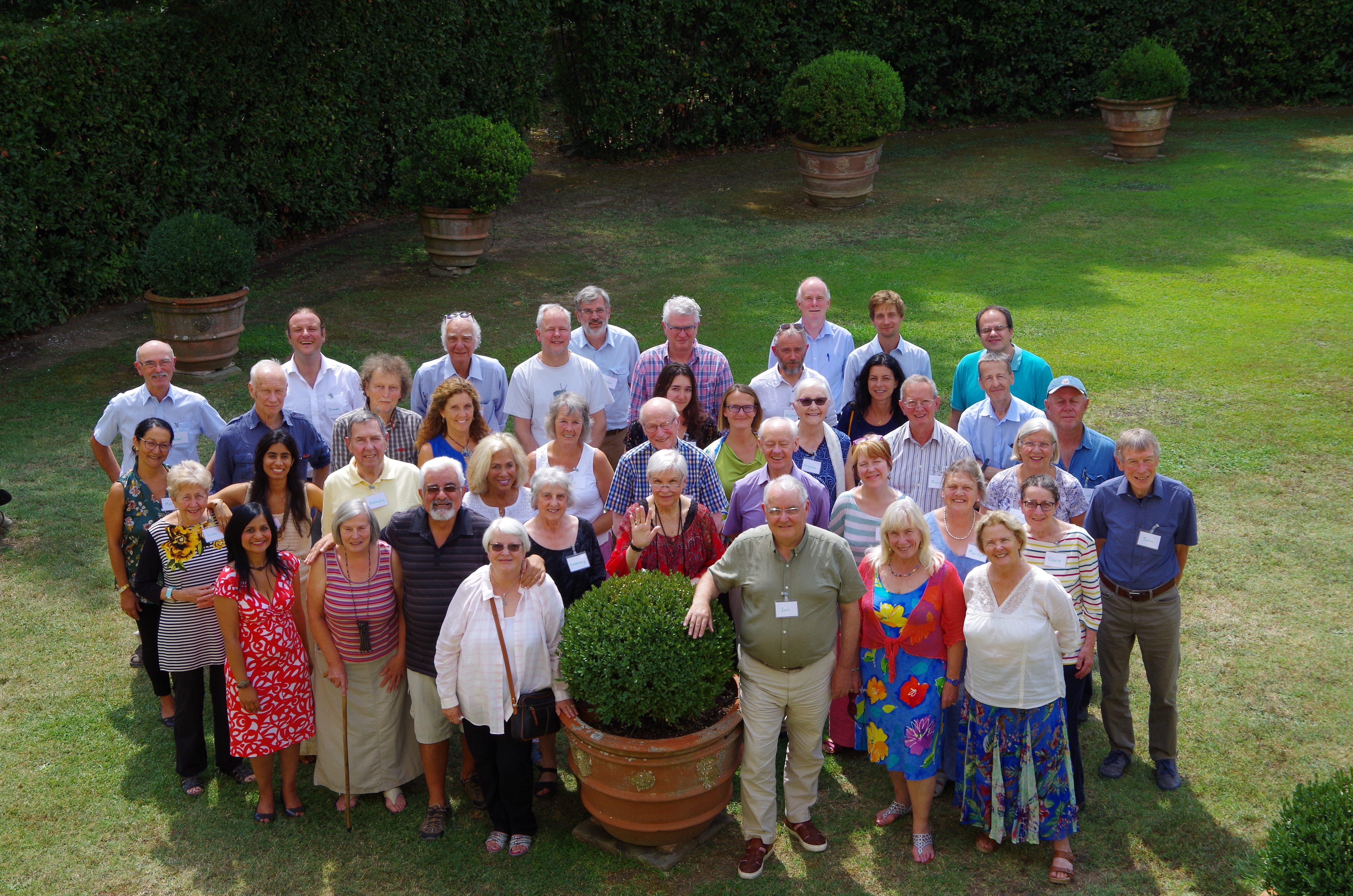- Details
- Written by: Kamran Mofid
- Hits: 1615
‘People’s manifesto’ to save British wildlife from ‘mass extinction’

Photo:www.chrispackham.co.uk
Following on our most rewarding and fruitful GCGI-SES, (Our Sacred Earth Conference), I was delighted to note the launch of People's Manifesto for Wildlife by the the British naturalist, nature photographer, television presenter and author, Chris Packham.
Here, due to its high relevance to our GCGI environmental work and project, I wish to share the Manifesto with you.
Chris Packham launches People's Manifesto for Wildlife

Chris Packham. Photo:independent.co.uk
“This is a people’s manifesto, not devised by the government, and we don’t have to wait for them to do something.” “We can do it ourselves. I want this manifesto to be a first draft to ignite public interest. We know how to solve the problems, we just need to make it happen.”- Chris Packham
Initiative lays out practical steps we can all take to help halt destruction of species and habitats in Britain
By Fiona Harvey, Via the Guardian*
Replanting hedgerows, including birdboxes on all new-build homes, rewilding uplands and an end to seal culling: these are among demands of the People’s Manifesto for Wildlife, a new initiative aimed at halting the drastic decline in British wildlife.
The manifesto has been drawn up by the naturalist and broadcaster Chris Packham, with the aid of 17 independent experts and scientists. They warned that people are sleepwalking into an “ecological apocalypse”, but said everyone could take practical steps themselves, and campaign for broader measures that could yet avert the wholesale destruction of species and habitats.
This Saturday, Packham is urging people from around the country to march through London to demonstrate their support for wildlife. He called on the government to bring forward a series of measures to halt destruction, but said people should also feel empowered to make their own changes.
“This is a people’s manifesto, not devised by the government, and we don’t have to wait for them to do something,” he said. “We can do it ourselves. I want this manifesto to be a first draft to ignite public interest. We know how to solve the problems, we just need to make it happen.”
Thousands of people are expected to turn out for the march, including Packham, columnist George Monbiot and nature writer Robert MacFarlane, while entertainment is to be provided by Billy Bragg, Grace Petrie and Saskia Eng. The walk, supported by many NGOs, schools and businesses, will start with people gathering in Hyde Park, central London, from 10am, with entertainment from noon to 1pm, followed by the walk which is expected to finish at 2pm.
The drastic decline in British wildlife has accelerated in recent years, with main factors being the rise in intensive farming and the destruction of habitats. Farmland bird numbers have more than halved since 1970, while the disappearance of insects went largely unremarked for years.
Some of the measures called for in the manifesto will require the cooperation of businesses and government: wildlife ponds for every industrial estate and all municipal parks, a pesticide tax, and an end to scallop dredging in UK waters.
Others may be highly controversial: banning dogs, except for assistance dogs, from all nature reserves. These would be compensated for by new dogwalking hotspots, but the issue is still likely to raise hackles among some pet-owners.
Among other ideas in the manifesto are ways to broaden participation in the conservation movement, for instance through promoting the importance of nature in schools and to young people to improve their mental health, and apprenticeship schemes to widen access to conservation jobs.
Michael Gove, secretary of state for the environment, pledged to consider the report in depth. “Chris Packham and his colleagues have successfully motivated the public to get behind many of these issues,” he said. “Through our schools we can develop the next generation of environmentally aware citizens and ensure wildlife and the natural world is protected.”
Craig Bennett, chief executive of Friends of the Earth, which is assisting with the event, said: “Our natural environment isn’t just a nice-to-have – it is crucial for our food, health and wellbeing. It’s time to end the sustained assault on wildlife and put it firmly at the heart of government policy making where it belongs.”
Tim Farron, environment spokesman for the Liberal Democrats, whose party conference finishes in Brighton on Wednesday, said: “Chris Packham is right; children do need to have more of a connection with the outdoors, whether that’s tree planting in urban areas or farm visits in rural ones. If they get that when they’re young, they will want to protect our environment in the future. The planning system also needs to be improved to help wildlife thrive – houses and offices need to be built with the environment in mind. We need to demand better from this government, that when they finally start building more houses the environment is central to their thinking.”
*The above article, by Fiona Harvey, environment journalist for the Guardian, was first published in the Guardian on 19 September 2018.
Related reading:

Strong communities, lasting friendships, healthy and worthwhile living, a just and fairer world, are all built on shared dreams and the practical tools to express those dreams.’
Our vision and our hopes and dreams for the flourishing of the Earth Community in these challenging times
- Details
- Written by: Kamran Mofid
- Hits: 1848
The sad and dysfunctional image of humanity that has been created by economists
"Today's neoclassical economist is an emperor with no clothes who has fooled us all along"

Photo: transitionvoice.com
'In spite of the utter failure of academic and professional economists to predict, explain or find solutions to the financial and economic crises sweeping the globalised, marketised world they have created, there is still little challenge to the narrow and one-sided way that economics is taught in our universities. In spite of the fact that economics is about complex human relationships, and is therefore bound to be the subject of debate and disagreement, there is no problem with university courses that only teach the neoclassical pro-market approach.’- Gaian Economics
Following on my recent Blog 2008-2018 Crises: Have we learned anything? and a few more before that, see a small sample below:
The Shaming of Economics Education
Calling all academic economists: What are you teaching your students?
The Destruction of our World and the lies of Milton Friedman
Bastard Economics of Greedy Neoliberalism and the Killings of the Innocents in London Tower
People’s Tragedy: Neoliberal Legacy of Thatcher and Reagan
Neoliberalism and the rise in global loneliness, depression and suicide
Economics and Economists Engulfed By Crises: What Do We Tell the Students?
Then, today, I came across a beautiful article by Kate Raworth, who is a senior visiting research associate at Oxford University’s Environmental Change Institute and a senior associate of the Cambridge Institute for Sustainability Leadership.
I was so happy reading it, all music to my ears. Thus, I am happy to share Kate’s wise words with you. I hope you will enjoy it as much as I have.
Economic Man vs. Humanity: A Puppet Rap Battle Challenging outdated economics with rap and puppetry
By Kate Raworth*
In the age of the selfie, one particular self-portrait matters more than the rest: the image of humanity that has been created by economists. Like most selfies, this one distorts reality, but unlike most, it has far-reaching implications because it, quite literally, alters who we become – and not for the better.
Rational economic man, or Homo economicus, is the infamous protagonist of mainstream economic theory. In my book Doughnut Economics I decided he needed to be made visible, so I drew him: a man, standing alone, money in hand, calculator in head, ego in heart, and nature at his feet. He hates work, loves luxury, and knows the price of everything.

The Rational Economic Man, Useless and Self-Centered, only loves money
Photo: evonomics.com
Of course, this is an absurd description of who we are – and no economist would say they actually believed it – but for over a hundred years this character has represented humanity in economics textbooks and mainstream models and is still central to the economic mindset that is taught to the next generation of economic policymakers worldwide.
Here’s the disturbing thing: research has found that merely studying Homo economicus can alter us. A study in Israel found that third-year economics students rated altruistic traits – such as helpfulness, honesty and loyalty – as being far less important than did their freshman equivalents. After taking a course in game theory (a study of strategy which assumes self-interest in its models), economics students in the US behaved more selfishly and expected others to do so too.
The implication? Who we tell ourselves we are shapes who we become.
Since publishing Doughnut Economics in early 2017, I have been contacted by many economics teachers around the world – especially those teaching in secondary schools – who want to encourage their students to critique this narrow text-book model of man and to offer them a far richer understanding of human behaviour. So that got me thinking…
In the spirit of challenging out-dated economics as playfully as possible, I teamed up with the brilliant duo of puppet designer Emma Powell and songwriter Simon Panrucker to create a one-of-a-kind critique of rational economic man. We decided it was time for a puppet rap battle, with savvy students pitched in debate with their old-school professor.
We would be delighted for teachers, students, networks, institutes, community groups – anyone with an interest in new economic thinking – to share the video in classrooms and online, teach with it, and use it to create discussion and debate (the video ends with a question for that very reason). The fully sourced words and lyrics are available for anyone who wants to catch every detail, and for a deeper dive, read chapter 3 of Doughnut Economics, on which this video project is based.
It’s time for a showdown: Economic Man vs. Humanity. Sit back and enjoy the puppet rap battle – sing along, pass it on, and wave farewell to Rational Economic Man. We need a better portrait of who we are.
*This article by Kate Raworth was first published on Evonomics on 8 September 2018
Click here to read the original article
Read more:
- Details
- Written by: Kamran Mofid
- Hits: 2039

14th GCGI International Conference
And
The Fourth GCGI and SES Joint Conference, Lucca, Tuscany, Italy
‘OUR SACRED EARTH: Spiritual Ecology, Values-led Economics, Education and Society Responding to Ecological Crisis’
Villa Boccella, Tuscany, Italy, 28 August-1 September 2018
A Reflection from Tamas Veress*
Group Photo-GCGI-SES Lucca 2018. Photo Credit: Angela Bowman
We arrived at Villa Boccella, a truly magical 17th century estate, set among the hills, vineyards and olive groves of Northern Tuscany. The locals - living within and around the medieval city of Lucca - have been growing and producing with respect towards Gaia for generations; today they combine scientific knowledge with traditional - organic, fossil excluding (chemicals, machinery) - ways of agricultural practices. The setting was perfect for us - participants from diverse life-paths -, to learn and to share our meals (thankfully to the selfless spirit of volunteering friends) as well as our thoughts, ideas and feelings regarding our sacred Earth.
In their opening talks Ian Mason, principle of School of Economic Science, and Kamran Mofid, founder, the Globalisation for the Common Good Initiative (GCGI), set the tone by welcoming and acknowledging each participants presence in ubuntu philosophy fashion "If you wouldn't be here, this event would not exist". We discussed the ills of the Anthropocentric worldview and talked about connections, relations towards our non-human fellow beings. Spirituality has to accompany our ecological knowledge and understanding about life's multi-focality; life doesn't exist by itself, life is the web of connections. Therefore economics based on the principle of utility seeking individuals is outdated. Sociability and fraternity are genuine and core elements of economic activities. In order to re-introduce responsibility and intentionality, we are to re-shape economics as a moral science. Within economics we have to create space for discussions, ideas which are intended to deal with questions such as "What should, and could be done?", and also "How will we get there?".
Importantly, during our thought exchanges we recognized that in parallel with intellectual work, emotional and spiritual work is ahead of us, as Mother Earth's and each beings' liberation is bound to one another - "I am because we are".
*Tamas Veress, GCGI Youth Ambassador, is a PhD student at the Business Ethics Center, the Corvinus University of Budapest. He is involved in community building activities and self-awareness, life-path planning workshops directed towards high school students, young adults and teachers.
- 14th GCGI International Conference and the 4th Joint GCGI-SES Forum, Lucca: A Reflection from Susan Eirich
- 14th GCGI International Conference and the 4th Joint GCGI-SES Forum, Lucca: A Reflection from John Thompson
- In terms of value creation, garbage men outweigh bankers
- The London Banker who Invented the Offshore that has broken the world
- 2008-2018 Crises: Have we learned anything?

